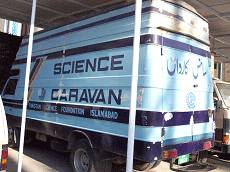More than a bilion people, the majority of whom are women, live in extreme poverty. Gender discrimination deprives women of the mainstream development initiatives.
It is widely acknowledged today that investment in women's education yields high social returns and income generation amongst poor women, improves household livelihoods, from which the children benefit the most. This innovative, cross-cutting, UNESCO Pilot Project, intended for girls of Bangladesh, India, Nepal and Pakistan, has three salient features:
1. Adolescent girls who are at the threshold of adult life (aged 12-18) are considered as potential actors for social change and a decisive population group for national poverty eradication strategies.
2. An interdisciplinary programme is designed and run jointly by an intersectoral UNESCO team and selected local partners, to improve the lives of adolescent girls living in poverty.
3. Actions are undertaken at four operational levels:
- the community level, transferring knowledge and skills to adolescents;
- the local level, sensitising the population for creating a supportive environment and establishing infrastructure for training and services;
- the national level, advocating favourable policies; and
- the sub-regional level, sharing, learning and networking.
The framework of the project was conceived, developed and prepared by a multi-sectoral group comprising staff from the Education, Science and Communication Sectors as well as from Youth Coordination and discussed and debated with local partners to design the various cross cutting activities, phase 1 2002-2003, phase II 2004-2005.



 More than a bilion people, the majority of whom are women, live in extreme poverty. Gender discrimination deprives women of the mainstream development initiatives.
More than a bilion people, the majority of whom are women, live in extreme poverty. Gender discrimination deprives women of the mainstream development initiatives.